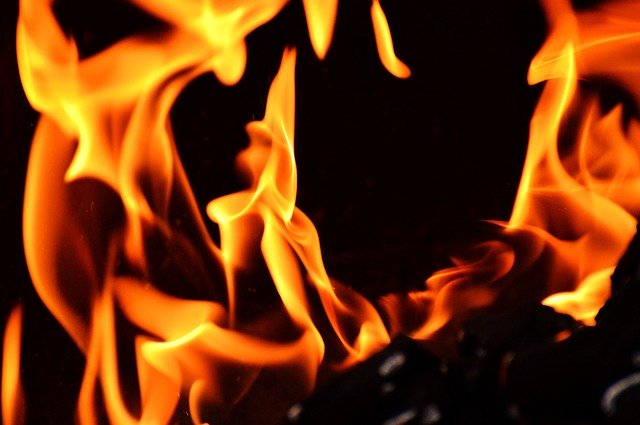Your fireplace offers you comfort and warmth. However, you must be careful to remember that your fireplace is an appliance and, like any other appliance, it needs proper care and maintenance to operate safely. If your fireplace is not maintained properly it can lead to a number of issues including chimney fires. We here at Old Smokey’s hope that you never have to experience a chimney fire, but we also think that it’s important to know what to do in case of a chimney fire and how you can prevent a chimney fire in the first place.

What causes chimney fires?
According to the Chimney Safety Institute of America (CSIA), more than 20,000 residential house fires every year can be attributed to a fire that started in the chimney. The most devastating thing about chimney fires is that a majority of them could have been prevented with just a little maintenance and upkeep. In fact, research by the National Fire Protection Association has shown that a majority of chimney fires were caused by chimneys that were not cleaned properly.
If the inside of your chimney is dirty, it is a safety hazard. There are a couple of ways in which a dirty chimney can lead to a chimney fire. First, if your chimney doesn’t have a chimney cap on top of it, debris from trees, blowing leaves, and animal nesting can cause blockages in your chimney. This kind of debris is combustible and can start on fire if it gets hot enough. The other way your chimney can catch on fire is due to creosote. When you burn fuel, chemicals that aren’t burned off are released as byproducts in the form of soot, smoke, and other gases. When these byproducts flow up your chimney, they start to cool and condense on the inside of your chimney walls. This condensation will accumulate into a thick tar-like substance called creosote. Creosote is combustible and when it catches fire, it is very hard to put it out. Creosote fires are considered more dangerous than debris fires because they burn hotter, longer, and don’t extinguish easily.
How do I know if I have a chimney fire?
This is a difficult question to answer because sometimes a chimney fire will be obvious, and other times, you might not know that you even have a chimney fire. Sometimes a fire will not have enough oxygen to produce large flames, but these types of fire can still do a lot of damage to your chimney and home. If a chimney fire is fueled well enough, it can be very noticeable. Signs include: hearing a loud roaring noise by your chimney; ash and debris flying out of the top of your chimney; black smoke coming from your chimney, and popping and cracking noises coming from your chimney. Any one of these are an indicator that you have a chimney fire.
What should I do if my chimney starts on fire?
Preparation is key to reducing the impact a chimney fire will have on your home. Be sure to have a fire alarm installed nearby and check it periodically to make sure that it is working. An alarm will warn you if there is a fire and save you precious time. Also, have a chimney fire extinguisher on hand. These are specially designed extinguishers that send smoke up your chimney, suffocating the fire.
If you have an active fire burning inside of your chimney, you need to get out of your home as quickly as possible and call the fire department. If it is safe to do so, use your chimney fire extinguisher and, if equipped to do so, close any doors or inlets to your fireplace or stove to reduce the amount of oxygen available to your fire before you head outside. Once outside, you have the option to hose down your roof to prevent the fire from spreading to your roof. However, spraying cold water on a hot chimney can cause your masonry to crack.
After your fire is put out, it may or may not look like there has been damage to your chimney. However, no matter what, you need to get your chimney a level 2 inspection by a Chimney Safety Institute of America (CSIA) certified chimney technician. Only a CSIA certified chimney technician will be able to determine what damage has been done to your chimney, and what, if anything, needs to be done to get your chimney back to safe operational status.
How can I prevent a chimney fire?
The best way to prevent a chimney fire is through annual chimney sweeps and inspections by a CSIA certified chimney technician. At Old Smokey’s our CSIA certified chimney technicians will make sure that any debris and creosote in your chimney is swept clean, rendering your chimney safe to use for the next year. Annual inspections are by far the best way to prevent chimney fires.
There are some other things you can do to prevent chimney fires. Installing a chimney cap to prevent debris from falling in your chimney and only burning seasoned wood to prevent excess creosote production. Doing these things alone won’t guarantee that you won’t have a fire, but it will help.
At Old Smokey’s your safety is our top priority. If it’s been a while since you’ve had your chimney inspected and cleaned, you could be putting your home at risk. Call us today at 800-876-6539 or 260-587-9691, or schedule an inspection appointment online. We look forward to keeping your home free of chimney fires this fall and winter.
